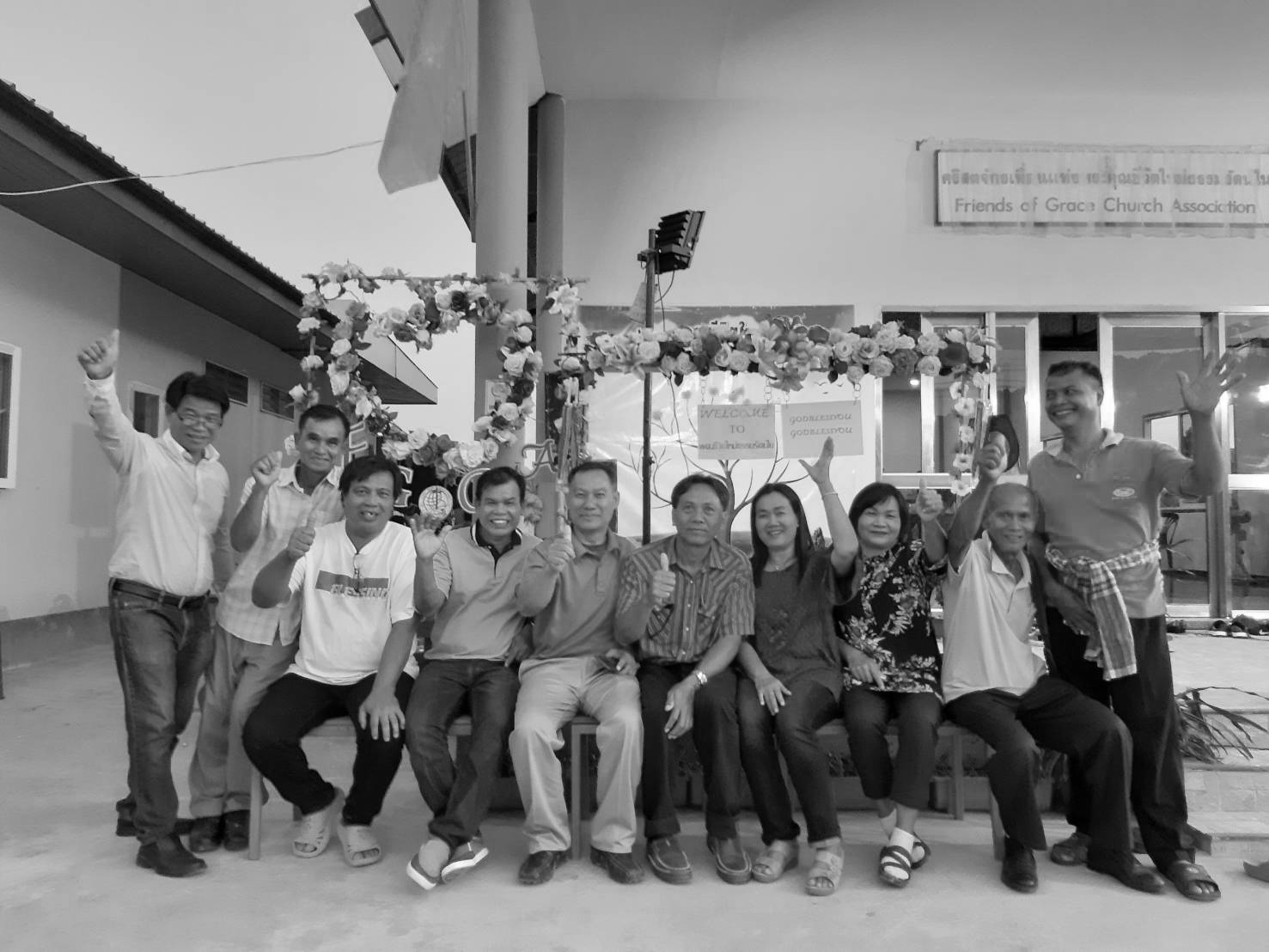August 24th, 2020‘Deconstructing race’: understanding the breadth of our diversity
by Jeanette Hanson

Friends of Grace Church Association in Thailand celebrates the opening of its office. Credit: Jeanette Hanson.
When we lived in Nanchong, China, our three-year-old daughter Claire came home from Kindergarten quite indignant that some of her classmates had said her hair was blond. “My hair is black!” she declared. I looked at the golden curls on her head and had to break it to her, “No, your hair is not black.” Years later a neighbour in that same city looked at me closely and declared, “When you first came here you looked like a foreigner and now you look really Chinese, your nose has even gotten smaller.”
In Deconstructing Race: Multicultural Education Beyond the Colour Bind, Jabari Mahiri, Professor of Education at UC Berkeley, suggests that our socially constructed concepts of race limit our understanding of one another. He argues that our continually evolving “micro-cultural identities” provide a more helpful understanding of diversity. Categories like White, Black, Latino, etc., don’t capture the breadth of the experiences, emotions and moments in our lives that make us who we are. Claire’s lived experience didn’t align with others’ perception of her hair colour. My neighbour’s perception of my foreignness changed once I became familiar to her.
Deconstructing “race” as we know it is crucial as we reflect on the racist and white supremacist roots of the institutions around us. We must grapple with the implications of being part of systemic racism. It seems too big a task. It is difficult to see where healing can start.
Yet in my work in International Witness I reflect on this reality all the time. How do we cross cultural barriers in life-giving ways? How do we form relationships that build up everyone? How do we all share our God-given gifts in the global body of Christ?
As a Witness worker in China I thought at times that I would never fit in alongside my Chinese colleagues until a local pastor gave me some advice: “We don’t need you to be Chinese; we need you to be who you are in relationship with us.”
Here are some examples of what this looks like in the ongoing work of International Witness:
- George and Tobia Veith, Witness workers in China, collaborate with Pastor Yin Hongtao, a Chinese graduate of AMBS, and several church leaders to provide Anabaptist discipleship-training to interested churches.
- Tany Warkentin represents International Witness in our work with Africa Inter-Mennonite Mission, which brings leaders from Burkina Faso, Congo, France and the U.S. together to share financial and human resources for ministry in Africa.
- During her studies at Eastern Mennonite Seminary in Harrisonburg, Va., a Chinese youth pastor, through our partner organization Mennonite Partners in China, worked with local pastors to minister to the many Chinese students in the city. She now pastors in China but has left a legacy of caring for Chinese students in that American community.
'We don’t need you to be Chinese; we need you to be who you are in relationship with us.'
Building relationships is central to the work of Mennonite Church Canada International Witness. We live and work with each other across the broad categories of race, ethnicity, language and politics. Through this work both our Canadian congregations and our international sisters and brothers receive the gift of a rich understanding of the diversity of the Body of Christ. We see God through the eyes of the other, experience God’s gifts together and spread the hope and healing of God’s love to the world.
Please join together with our congregations across Canada as we celebrate these relationships on International Witness Sunday, on October 18. For worship resources and more information on how to learn, give and participate, go to https://www.mennonitechurch.ca/IW-Sunday.
Jeanette Hanson is director of International Witness for Mennonite Church Canada. She can be reached at jhanson@mennonitechurch.ca.